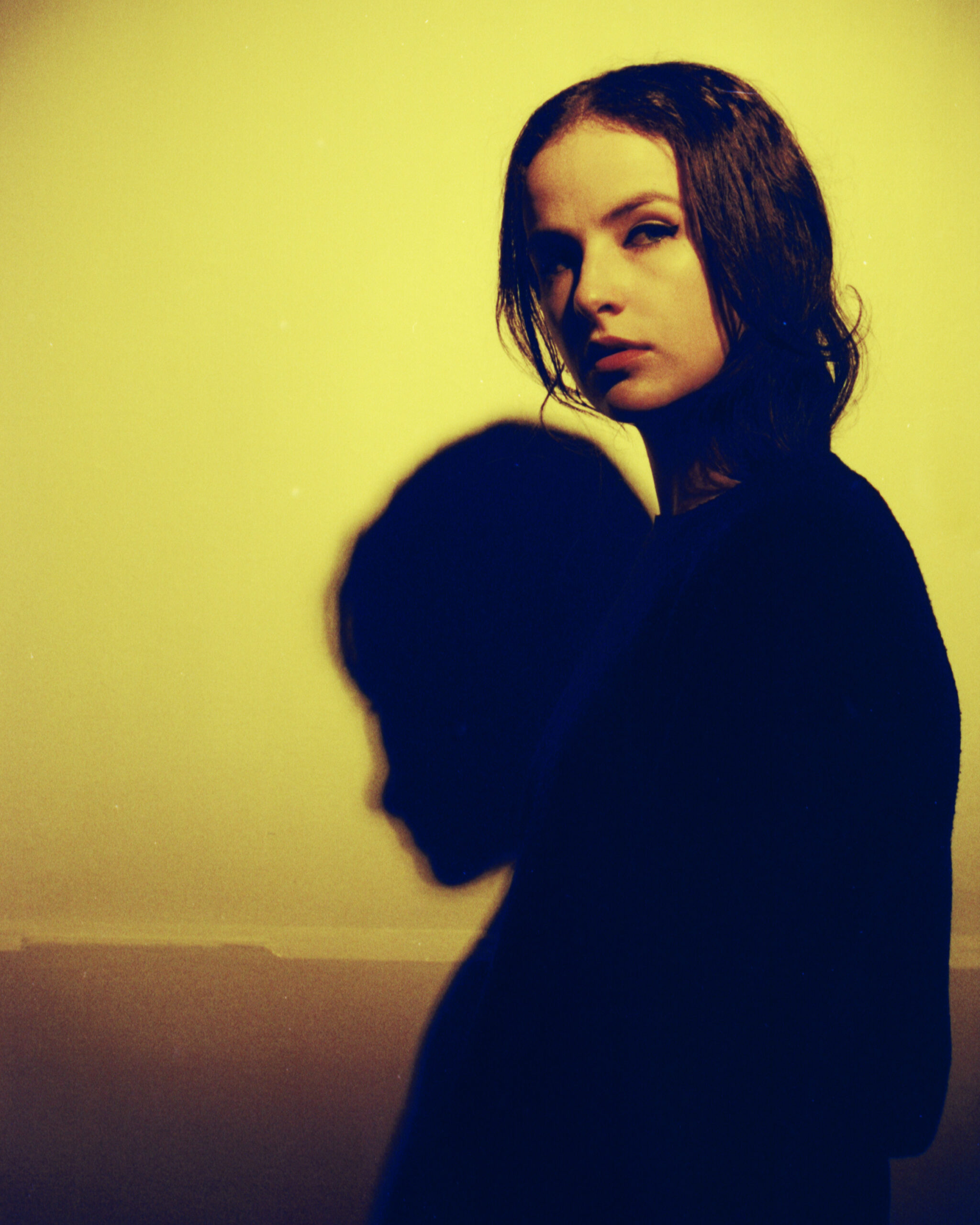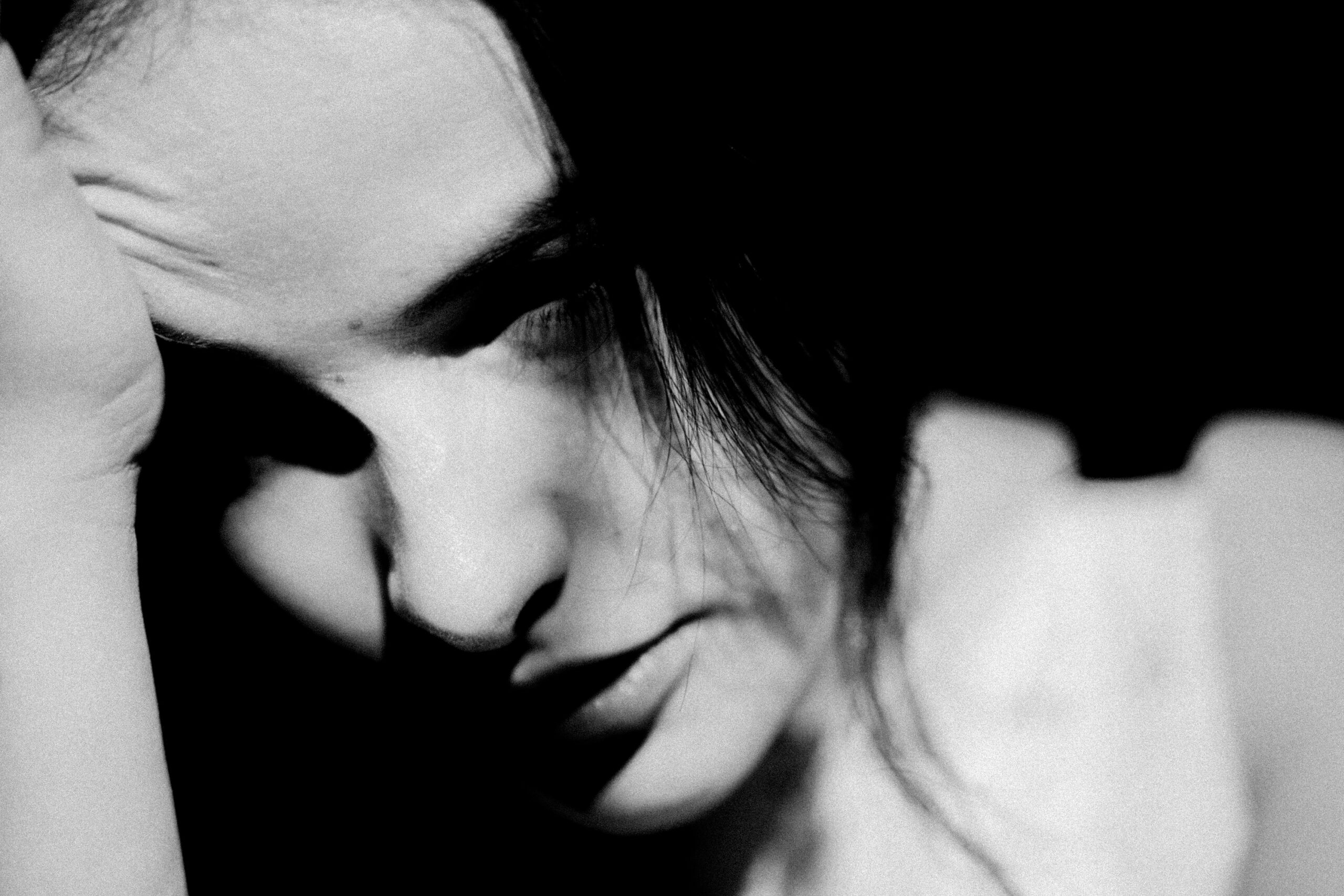The analogue dance artist bringing old-school back

Photography by Freddy Fitzhugh
Static beats, buzzing synthesisers and breathy, introspective lyrics are just some of what’s found on the debut album of Colombian artist Ela Minus. The impressive piece, acts of rebellion, was released last summer into the unsatiated world of dance music, who excitedly drank up the sound of the rising star. A sonic marathon of exclusively analogue beats, the album channels waves of undulating energy that playfully throw you from a reflective rest to getting right up on your feet.
It’s been a lifetime of laboured love to create this masterpiece. Having spent several years as a jazz drummer, Minus took a job learning to construct synthesizers from scratch. The result? Everything we hear today is produced and recorded with the same hardware built several years before. It’s a carefully crafted piece, where even the characteristic theme, is a cultivated meditation on the artist’s personality. These ‘acts of rebellion’ come from everyday moments of oppositionality. “It was an act of self-exploration,” she tells Glamcult. “But I’m so surprised that people really relate to the theme, it turns out to be so universal.”
Hi Ela. So your debut album acts of rebellion was out last summer, can you tell me more about it?
After being on tour for a couple of years playing drums for other people, I just woke up one day and wanted to make an album. I locked myself up in my room and made this full album. My equipment is very simple. I don’t use laptops, only analogue synthesisers and a drum machine when performing live. With these, I record and produce everything.
These ‘acts of rebellion,’ what do they mean?
Yet for me the acts of rebellion are very personal. They’re the small things I do on an everyday basis as acts of resistance. When starting to make the album, I had all these little kernels of lyrics, and all of them – even the ones which were unfinished, were defiant. Looking back, I realised that resistance has been a common denominator my whole life. It made me question “oh do I really like music, or am I only making it because somebody told me I couldn’t.
Hahaha …
Sometimes it’s not even something I cared about personally. I’m not even sure that I cared whether there weren’t any female drummers, but it still made me want to defy that so I became a female drummer.
How would you describe your creative process?
The way I write is that I improvise a lot. I record stuff and then on Sundays, I’ll look back on everything I wrote that week. Eventually I’ll start separating the things I like and the things I don’t. Then, after a few weeks, I’ll have enough material to make an album.
Your process sounds very fluid – Do you find experimental aspect of creativity allows you mental freedom?
I usually don’t think of my music and process as mental in any way. I try hard to not think, and do it instinctively – more through my stomach than my mind.
How did your past experience playing drums help you now?
I played drums from when I was nine until about twenty-five and even went to college to study them. Yet when I was there, I realised I was a bad drummer compared to the people I was going to school with. I had never been the best at anything, so I got extremely obsessed with how I could learn something that set me apart from others.
Eventually, I realised that was my spirit and my instance. This made me question – how can I turn that into drums? How can I turn that into my body, to move in a certain physical way which makes a certain sound that nobody else can make? Even though it’s not the regular, or most efficient way. Nowadays, I approach electronic music in just the same way.
Wow. It sounds like you have built a very trusting relationship with yourself. One which knows how to refine a process.
In normal life, I’m quite shy and I don’t speak very much. Yet I have been lucky to be around musicians who I can observe a lot. When I got jobs playing drums, often I’d just got to sit around and see how a lot of artists work. Often, I really didn’t like the way they worked. It’s not a judgement thing, it’s just that I wouldn’t do it like that.
An element of defiance again! Learning what not to do in order to learn how to do something!
Exactly.

Photography by Freddy Fitzhugh
So how did the progression from drums to electronic music happen?
In Colombia, I was never exposed to electronic music culture. When I moved to the US for college there were just so many clubs. Again, there was an element of the defiance thing – I was going to school for jazz and that’s all we listened to all day. When I went home I listened to completely different music, whatever was the opposite of my life at school. I started going by myself, and it became my own thing – my own world.
You’ve mentioned that at first you never wanted to make music?
Yeah, I was just fascinated by the sound of it and how to make it. I decided I wanted to make synthesisers, so I went to school for coding too. After I graduated, I hated computers because I’d spent so much time with them. But I got a job building analogue synths, and spent time physically assembling and constructing the machines.
Such an unconventional way of going into something.
There was never anything particular in mind musically. I would just find parts at the shop I was working at and build something with them at home. Finally I wanted to make music with it. So what I built back then is the set-up I still have now.
What does analogue allow you to do which digital set ups do not?
In the simplest way, if I sit down in front of a laptop, making music is never the first thing I think about. I do ten other things and then get working.
Relatable! You’ve sent a million emails, watched five YouTube videos…
Exactly. With an instrument, I have built this discipline. I see a synth and my mind goes somewhere else. I think of other things, which allow me to be creative.
I also love the fact I have such contained limits on a synth. When you’re sitting in front of a laptop, you can make literally every sound you can imagine. For me that wouldn’t work, I’d get lost in possibilities and wouldn’t make anything worthwhile. Instead, I have four synths and I know all the limits of the sounds I can make. That works absolutely in my favour – you have to have quality content. You can’t hide behind an overproduced, mediocre melody like on a computer.
On your Spotify page it says you create “Bright music for dark times” do you think this summarises what you do?
It’s more of my approach towards life. I’m a very practical, positive person. So when I see a problem, my mind is like “oh that’s fucked” but I instantly start thinking of solutions or the bright side.
I do feel very free, and I love my life and the people around me. Often, I feel like I’m lighter than my friends who make music even if they’re more successful. I realised that if I felt happy despite the defiance, then maybe there’s something in those rebellious acts that I can share.
Words by Rose Holmshaw